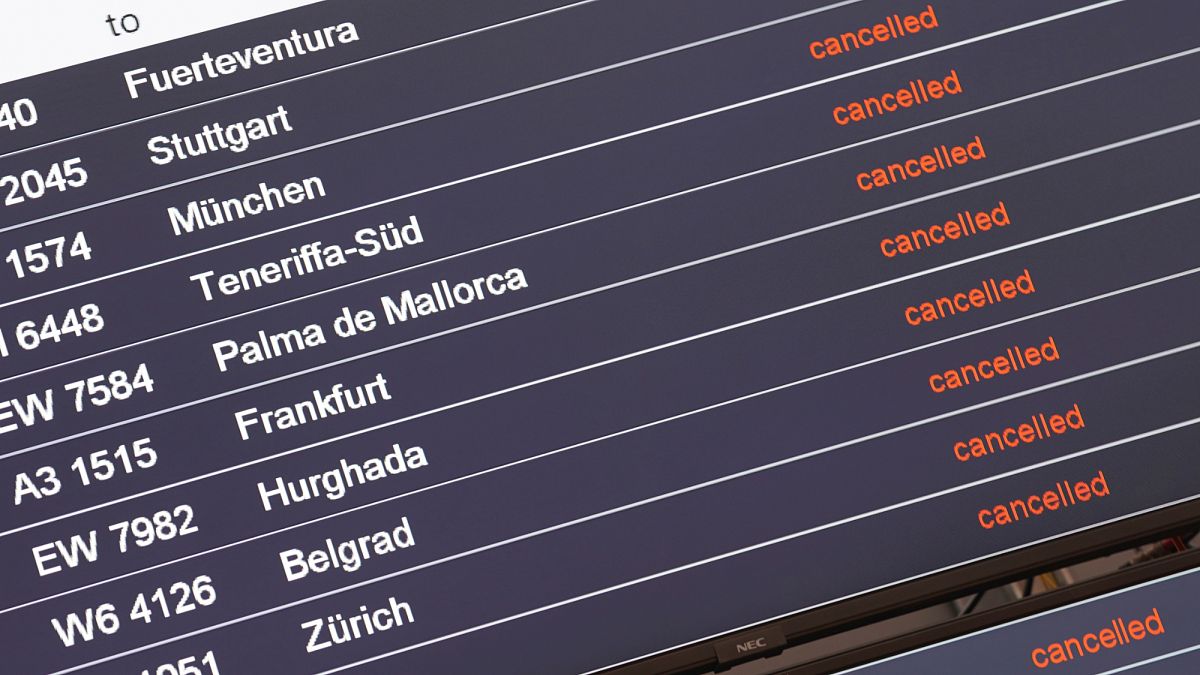The proposed update to European rules for obtaining compensation in the event of air travel delays could deprive 85% of passengers of compensation, according to consumer associations.
European air passengers could face new difficulties in obtaining compensation for flight delays with the European Union launching a review of regulations dating back to 2004.
But the text has encountered some political obstacles with civil society and airlines calling for it to be updated.
Currently, it is possible to obtain compensation of between €250 and €600 for delays of three hours or more.
But negotiations currently under way could result in new rules that are unfavourable to consumers, according to the European Consumers’ Organisation (BEUC).
“The Commission has proposed changing the time limit for receiving compensation. It would no longer be three hours, but five, nine or twelve (hours), depending on the distance,” Steven Berger, a legal expert at BEUC, told Euronews.
“In concrete terms, what impact is this going to have? If what is currently being discussed is approved, 85% of consumers would no longer be entitled to compensation.”
The directive applies to any flight departing from an EU airport, regardless of the nationality of the airline, and to flights arriving at EU airports if they are operated by an EU airline.
It does not apply to flights to Europe operated by non-EU airlines, or to non-EU flights with a stopover in Europe.
The regulation covers all Member States as well as Iceland, Norway and Switzerland.
Compensation is not payable in the event of “extraordinary circumstances”, for example e. extreme weather conditions, air traffic control restrictions, strikes not involving airline staff and political instability.
BEUC is also critical of the timeframe envisaged for asserting passengers’ rights.
“At the moment, what is on the table…you would only have three months to ask for compensation or for your rights to be respected if you have had a problem with the airline, which is far too short”, insists Steven Berger.
Flexibility defended by the airlines
The discussions underway between the Member States are based on a proposal made by the European Commission in 2013.
Once again, civil society believes that this text is outdated and no longer corresponds to the needs and requirements of today’s passengers.
For airlines, on the other hand, this 10-year-old document remains a good basis for discussion.
The A4E (Airlines4Europe) association, whose companies account for 70% of European air traffic, has written to explain that “the European Commission’s 2013 compromise proposal would give airlines the flexibility they need to manage disruptions more effectively, helping to preserve flights and better meet passengers’ top priority: getting to their destination as quickly as possible.”
According to A4E, “current legislation remains ambiguous, creating uncertainty for passengers, airlines and the courts.”
While compensation for delays and cancellations is at the heart of the difficulties, the consumer associations also point to the need to review the role of travel intermediaries.
These are platforms for comparing, booking and buying airline tickets, but they are not subject to the rules laid down in the 2004 text.
Poland, which holds the six-month presidency of the EU, has taken over the dossier and wants to make as much progress as possible in the negotiations between now and June.
For the moment, negotiations are taking place at the technical level and have not yet reached the political level.
Read the full article here


